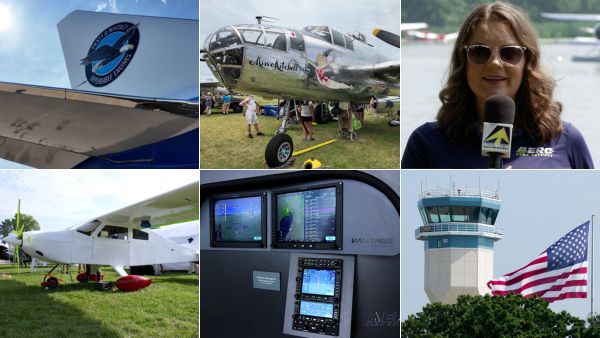Fri, May 18, 2012
One Hundred Percent Screening Will Be Required As Of December 3, 2012
The TSA announced Thursday it has set a deadline for passenger air carriers to conduct 100 percent cargo screening on international flights bound for the United States. Beginning December 3, 2012, all cargo shipments loaded on passenger aircraft must undergo screening for explosives, fulfilling a requirement of the Implementing Recommendations of the 9/11 Commission Act.

TSA has worked closely with other governments, international organizations, and industry partners to increase the security of air cargo without restricting the movement of goods and commerce. The screening deadline announced today requires 100 percent screening of all air cargo shipments bound for the U.S. It builds additional risk-based, intelligence-driven procedures into the prescreening process to determine screening protocols on a per-shipment basis. This process requires enhanced screening for shipments designated as higher risk, while lower risk shipments will undergo other physical screening protocols.
“Harmonizing security efforts with our international and industry partners is a vital step in securing the global supply chain,” said TSA Administrator John S. Pistole. “By making greater use of intelligence, TSA can strengthen screening processes and ensure the screening of all cargo shipments without impeding the flow of commerce.”
These risk-based security efforts are one aspect of the Administration’s recently announced Global Supply-Chain Security initiative. Currently, all cargo on passenger aircraft- both domestic and international- departing U.S. airports undergoes screening. Domestically, cargo screening is conducted by air carriers or those voluntarily participating in the Certified Cargo Screening Program, under strict regulatory oversight of TSA. TSA has more than 500 inspectors throughout the country to ensure compliance with air cargo security regulations. In addition to its domestic inspector workforce, TSA has more than 100 internationally-focused inspectors who assess and document security measures at applicable foreign airports.
TSA will continue to work with other governments, international organizations, and industry partners to strengthen air cargo security by putting more risk-based and intelligence driven procedures into the screening process.
More News
Also: Pratt & Whitney 747SP, Gratia Aero, Robinson/MagniX, Jack Pelton Part5 The Avidyne Vantage 12 is finally certified and will shortly be shipping out so that aging Cirrus a>[...]
Aero Linx: Army Aviation Medicine Association (AAVMA) The Society of US Army Flight Surgeons (SoUSAFS) serves to advance the science and art of Aerospace Medicine and its allied sc>[...]
Witnesses Reported That They Heard A Loss Of Engine Power Analysis: Witnesses reported that the airplane departed from runway 35 after a successful runup. During the initial climb,>[...]
Radio Magnetic Indicator An aircraft navigational instrument coupled with a gyro compass or similar compass that indicates the direction of a selected NAVAID and indicates bearing >[...]
"After exiting, I had a vague recollection of what just happened…and a much clearer view of how quickly hypoxia can sneak up. Sign-ups for PROTE are open each day of AirVent>[...]
 OSH25 Day 5 Redux: Avidyne Vantage 12, Is Fly-Inn An AeroBnB?, B25 Miss Mitchell
OSH25 Day 5 Redux: Avidyne Vantage 12, Is Fly-Inn An AeroBnB?, B25 Miss Mitchell ANN's Daily Aero-Linx (07.29.25)
ANN's Daily Aero-Linx (07.29.25) NTSB Final Report: Curtiss Wright P-40E
NTSB Final Report: Curtiss Wright P-40E ANN's Daily Aero-Term (07.29.25): Radio Magnetic Indicator
ANN's Daily Aero-Term (07.29.25): Radio Magnetic Indicator Aero-News: Quote of the Day (07.29.25)
Aero-News: Quote of the Day (07.29.25)



